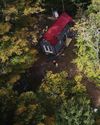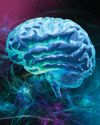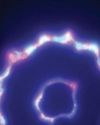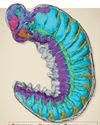
JEFFERSONTOWN, KENTUCKY NOVEMBER 2021
The suspects had stashed the van inside a residential garage on Southside Drive in this suburb just outside Louisville. At 4 a.m., officers from the Jeffersontown Police Department burst onto the property, raided the garage, and opened the van’s back doors. There, they found their mark: almost 200 catalytic converters, a tangle of rusty parts with hacksaw marks where each had been cut from a vehicle. It seemed the homeowner was fencing stolen catalytic converters, paying thieves for the parts, then selling them to a processor who extracted the precious metals inside. One catalytic converter (or “autocat,” to gearheads) can net a thief more than $100, while the broker buying the parts could sell each one to a recycler for up to $500.
And it’s pretty easy money: Removing a catalytic converter can take less than a minute, involving little more than a thief slipping under a car and making two cuts with a Sawzall.
The day before the Jeffersontown raid, police had caught a man on camera stealing a catalytic converter in a hotel parking lot. That man went directly to the house on Southside Drive, not even bothering to change the clothes that easily identified him.
Police ultimately arrested him, as well as the homeowner and his wife, mother-in-law, and twin brothers. All face charges of trafficking in stolen auto parts. According to Jeffersontown Police Chief Rick Sanders, crude but “meticulous” records recovered in the raid suggested the hustle had made the family $180,000 in four months.
“[The raid] is a significant event,” Sanders said at a press conference a few days later. “We consider these to be high-level violators who are responsible for hundreds of catalytic converters that have been stolen throughout Jefferson County.” That year alone, Louisville Police reported 1,340 of the stolen parts by October 20, almost 10 percent of the entire nation’s 2020 total.
Esta historia es de la edición July - August 2024 de Popular Mechanics US.
Comience su prueba gratuita de Magzter GOLD de 7 días para acceder a miles de historias premium seleccionadas y a más de 9,000 revistas y periódicos.
Ya eres suscriptor ? Conectar
Esta historia es de la edición July - August 2024 de Popular Mechanics US.
Comience su prueba gratuita de Magzter GOLD de 7 días para acceder a miles de historias premium seleccionadas y a más de 9,000 revistas y periódicos.
Ya eres suscriptor? Conectar

ONE OF THE 'GREATEST THREATS' TO THE PACIFIC NORTHWEST ISN'T WHAT YOU THINK.
EXPERTS ARE PREPARING THE REGION AGAINST THE THREAT OF DANGEROUS VOLCANIC MUDFLOWS, KNOWN AS LAHARS, WHICH COULD INUNDATE THE COMMUNITIES SURROUNDING MT. RAINIER IN AS LITTLE AS 30 MINUTES.

THE WORLD'S TOUGHEST ROW
They rowed 3,000 miles across the Atlantic, battling unpredictable weather, chaotic seas, and finicky equipment. But what they discovered gave them profound new insights into the power of the ocean.

HOW TO DIY OFF-GRID SOLAR
SPEND THE TIME UP FRONT AND PLAN IT CAREFULLY TO AVOID DISAPPOINTMENT

Are We on the Verge of an ARMS RACE in SPACE?
RUMORS OF A RUSSIAN SPACE NUKE, ALONG WITH OTHER SATELLITE-TARGETING WEAPONS, HAVE MADE GEOPOLITICAL TENSIONS EXTEND INTO ORBIT.

Fresh Fingerprints on an Ancient Statue
A CLAY FIGURINE HAS SPENT MILLENNIA incomplete, waiting at the bottom of a lake for its long-dead craftsman to finish the Iron Age-era statuette.

Quantum Entanglement in Our Brains
IT HAS LONG BEEN ARGUED THAT THE human brain is similar to a computer. But in reality, that's selling the brain pretty short.

The Tools of Copernicus
WAY BACK IN 1508, WITH ONLY LIMited tools at his disposal, Nicolaus Copernicus developed a celestial model of a heliocentric planetary system, which he described in hist landmark work De revolutionibus orbium coelestium. It was a complete overhaul of our conception of the universe-one that, unfortunately, earned him the ire of the Catholic church for decades after his death-and forever changed the way we look at the stars.

Building a Sixth-Generation Bomber Raptor
THE GLOBAL COMBAT AIR Programme (GCAP)-a project by the U.K., Italy, and Japan to develop a sixth-generation stealth fighter-has been busy at the drawing board reshaping its vision of the future of air warfare. And judging by the new concept model unveiled at this year's Farnborough air show, that future has big triangular wings.

The Electroweak Force of the Early Universe
TODAY, THE UNIVERSE AS WE KNOW IT IS governed by four fundamental forces: the strong nuclear force, the weak nuclear force, electromagnetism, and gravity.

This Ancient Fossil With a Brain and Guts
WE KNOW WHAT FOSSILS LOOK like. For example, typical dinosaur fossils are bones turned to stone and preserved from the passage of time, located, if we're particularly lucky, in large collections that can be reassembled to represent the beast they used to prop up in their entirety.